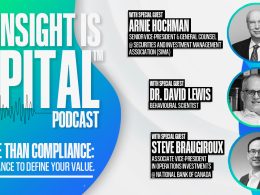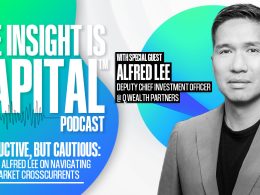Do You Need a Consultant or a Coach?
by Commonwealth Financial Network
 There are times in life when we could all use a little extra help to reach our goals. Let’s take a common struggle for many: weight loss. Who doesn’t have those 5 or 10 pesky pounds that simply won’t go away? Barring medical issues, however, it is often hard to shed the weight—no matter how hard we try. For many, turning to a weight-loss coach or consultant is the right solution.
There are times in life when we could all use a little extra help to reach our goals. Let’s take a common struggle for many: weight loss. Who doesn’t have those 5 or 10 pesky pounds that simply won’t go away? Barring medical issues, however, it is often hard to shed the weight—no matter how hard we try. For many, turning to a weight-loss coach or consultant is the right solution.
Now think about the professional aspirations you have that seem just out of reach. Do you need a consultant or a coach to give you that extra push? To help answer this question, let’s first look at the difference between consulting and coaching, and then we'll explore what each has to offer to help you overcome obstacles and reach your goals.
Both a consultant and a coach can tell you what you need to do to lose weight. For example, you need to make good decisions about what to eat and drink or how and when to exercise. But then the message begins to differ.
- A consultant will identify the problem and provide tangible solutions (e.g., diet and exercise guidelines).
- A coach will help you discover your strengths and weaknesses and support behavioral changes to help you adhere to a healthy regimen.
The external. There are three types of consultants. Expert consultants tell us the answers to our problems; pair-of-hands consultants do the work of implementing the solution to our analysis; and process consultants act as facilitators and collaborators as we collect data, analyze situations, and determine options for moving forward. Each of these consultants looks to external factors that contribute to our being stuck—factors at play in our processes, the firms and industries for which we work, the economy, and more.
The internal. Coaching, on the other hand, focuses on the internal. As defined by Bruce D. Schneider, PhD, MCC, the founder of the Institute for Professional Excellence in Coaching, the process is one of “bringing out the potential in a client, be it a person, couple, family, or corporation. This process is done by emotionally connecting the client’s inner purpose and passion to outer goals and strategies to bring about extraordinary and sustainable results.”
Coaching provides a safe place for us to look inward, identifying our key motivators for—and main barriers to—reaching our potential. All of the answers lie within each of us. The coach simply provides a path for us to discover answers for ourselves and then holds us accountable to do the work to effect change.
When presented with your personal situation, a coach may begin by asking how you want to proceed. In most cases, you have five options:
- Accept the situation.
- Leave the situation.
- Change the situation.
- Change your perspective of the situation.
- Do nothing.
A coach may then ask you, “Which of these is not an option?” Once you’ve narrowed the list to the two most viable choices, the coaching process will help you work through the necessary steps toward achieving your goals.
Keep in mind that knowing what to do is not the issue; doing it is the issue. Let’s go back to the weight-loss example. Most of us know what we need to do to lose weight but find it hard to be consistent. Because the hindrance for most of us is psychological, coaching helps move things along by identifying the block—which drains it of its power—and refocusing us on positive motivators.
Once you decide on your viable options, you will likely face some perceived limitations that may hamper your progress:
- Gremlins: Our inner critics
- Assumptions: Accepted beliefs that may or may not be true
- Interpretations: Subjective understandings
- Limiting beliefs: Assumptions or interpretations that inhibit personal growth
A coach can help you determine whether one of these psychological barriers is preventing you from achieving the goals you have set for yourself—and your firm. This will also enable you to move forward with confidence.
Process consultants can work with you to identify your needs, analyze the situation, determine viable options, and establish a plan for moving forward. A coach can help you remain accountable to accomplishing your key goals. Whatever your situation, both consulting and coaching can play a key role in reaching your professional goals.
Have you considered working with a consultant or coach? What perceived limitations have hampered your progress in achieving your professional goals? Please share your thoughts with us below!
Commonwealth Financial Network is the nation’s largest privately held independent broker/dealer-RIA. This post originally appeared on Commonwealth Independent Advisor, the firm’s corporate blog.
Copyright © Commonwealth Financial Network
















